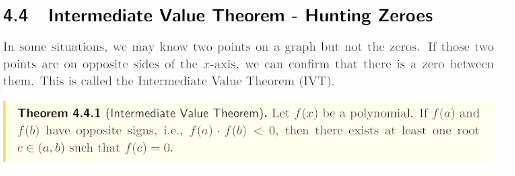土木一 Carlos Aaron Yap
In NTU, calculus can be said to be one of the courses students struggle most with. Foreign students who have never even heard of calculus or have never been introduced to calculus will most definitely have a hard time. Pre-calculus Is exactly as its name suggests. It’s a 1-credit course taught by Dr. Kwok-Wing Tsoi that is targeted at those who wish to build a foundation for calculus. To enroll in this class, you have to personally send an email or ask Dr. Kwok-Wing Tsoi and ask an invitation code.
The system of this course is simple. Every week, Dr. Kwok-Wing Tsoi will publish 4 videos and an exercise to be done. The exercise’s due is within 1 week after being published. The purpose of the videos is to help us understand the fundamentals and skills required to do the exercise. Since it is online, we can do it anytime and it won’t affect our daily lecture schedules. Moreover, the scoring system is particularly unique as it won’t affect our GPA. As long as you receive 60% for the course, you will automatically pass. Each exercise is worth 2% and it is graded based on its completion. However, if the professor or TA deemed that you lack understanding, they will deduct some points from your exercise. However, they will also invite you to a face-to-face meeting to address the problem. After the meeting, if they see that you can understand the topic, the deducted points will be returned to you. A midterm exam and final exam will be held on the eighth and sixteenth week respectively.
 In week 1, the lesson will be focused mainly on basic concepts of function. Explaining about notations, domain and range as well as graphs of a function. I find this part very important because without understanding the notation used in calculus, you will find it near impossible to understand what the professor is talking about. In the first week, you will also learn how to find a function’s domain and range as well as how to sketch its graph.
In week 1, the lesson will be focused mainly on basic concepts of function. Explaining about notations, domain and range as well as graphs of a function. I find this part very important because without understanding the notation used in calculus, you will find it near impossible to understand what the professor is talking about. In the first week, you will also learn how to find a function’s domain and range as well as how to sketch its graph.

Next, for weeks 2,3 and 4, the course will focus on polynomials. Several convenient techniques for factorization such as “completing the square” and “cross-method” are taught here. Some polynomial identities are also introduced during this time. Once you are finished with the techniques, you will start solving the polynomial equations. A very important theorem — “Intermediate Value Theorem” is also briefly explained in this week.
 The next few weeks will delve deeper into the topics of functions. For weeks 5 and 6, the course will explain about rational, inverse, and root functions. During this time, you will learn about asymptotes and discontinuities as well as how to identify them in a function. You will also learn how to inverse a function and sketch its graph.
The next few weeks will delve deeper into the topics of functions. For weeks 5 and 6, the course will explain about rational, inverse, and root functions. During this time, you will learn about asymptotes and discontinuities as well as how to identify them in a function. You will also learn how to inverse a function and sketch its graph.
Weeks 7, 9, and 10 focus on trigonometric functions. Week 7 briefly introduces trigonometric functions, quadrants, and special angles. During this time, it’s best if you spend some time to memorize or familiarize yourself with these angles as they are often used in various question. The next week will teach you how to draw the graph of a trigonometric function. You will also learn multiple important trigonometric identities and formulas. Lastly week 10 explains its uses and applications in geometry, and how to completely solve trigonometric functions.
 Weeks 11 and 12 is all about exponential functions and logarithms. In these 2 weeks, you will learn the definition of logarithm, the natural number e, the rules of logarithm as well as how to solve logarithmic functions.
Weeks 11 and 12 is all about exponential functions and logarithms. In these 2 weeks, you will learn the definition of logarithm, the natural number e, the rules of logarithm as well as how to solve logarithmic functions.
The last 3 weeks of lessons will focus on vectors and summation. Weeks 13 and 14 are all about vectors. However, most of the things taught should already be easy since they are related to Applied Mechanics 1, which is a required course in the Civil Engineering department. Week 15 will introduce summation with an interlude to mathematical induction, and lastly geometric sums.
Overall, I think this supplementary course is very helpful to those who need to build an understanding of basic calculus. It is also a versatile course since it doesn’t only relate to calculus. Students are also not pressured to finish the exercises and can watch the videos anytime and anywhere. I find the topic about asymptotes to be the most helpful. I once applied the things I learned about asymptotes in a calculus quiz and found it to be extremely practical. I also asked my friends if they knew about this technique and to my surprise, almost all of them didn’t know it existed. If you really need a helping hand with calculus, I really recommend you check this course out. Since all you need is 60% for the course, you don’t really have to worry too much. As long as you dedicate about an hour each week and review for exams, obtaining a 60% will feel like a breeze.




